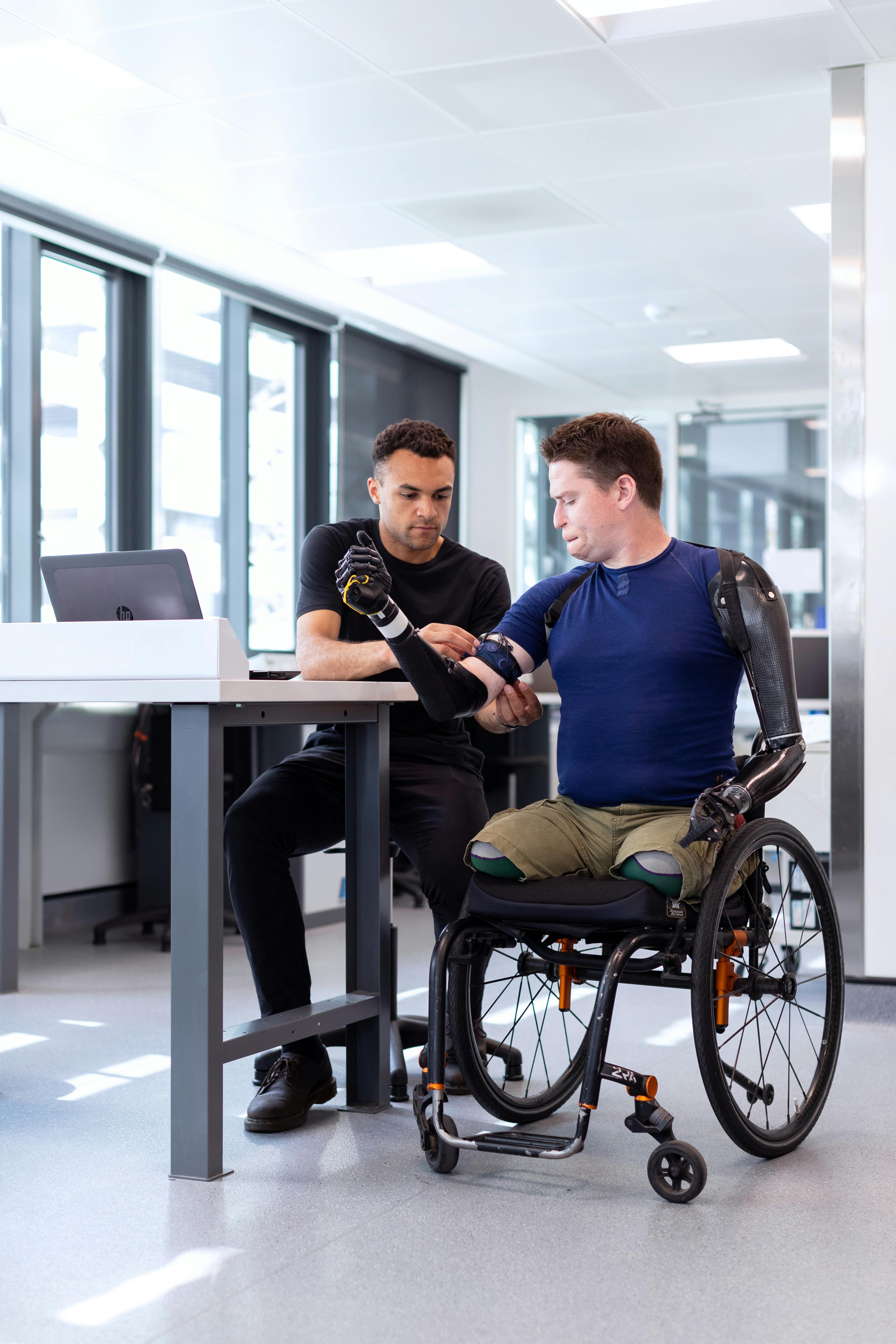 Basic
Basic
The purpose of this course is to equip workers with the knowledge and skills to identify, prevent, and respond to cyber threats that may impact the safety of personal and organisational information. With the increasing use of online systems for participant data, communication, and service delivery, cyber security is a vital part of risk management and compliance. Learners will gain an understanding of common cyber risks, safe digital practices, and organisational responsibilities under privacy and data protection legislation. The course also explores how to respond to suspected breaches and contribute to a culture of security awareness.
 Basic
Basic
The purpose of this course is to ensure workers understand their responsibilities under the NDIS Code of Conduct, human rights legislation, and organisational policies designed to prevent fraud and unethical behaviour. By exploring ethical decision-making, human rights principles, and the risks of fraudulent practices, workers will learn how to act with integrity, protect participants, and safeguard organisational trust. The course highlights the importance of accountability, transparency, and ethical culture in service delivery.
 Intermediate
Intermediate
The purpose of this course is to equip workers with the knowledge and skills to recognise signs of domestic and family violence, respond safely and appropriately, and refer participants to relevant support services. It highlights the serious risks domestic violence poses to participant safety, wellbeing, and human rights. By building awareness and clear pathways for response, this course empowers workers to play an active role in safeguarding vulnerable individuals while maintaining professional boundaries and compliance with organisational and NDIS safeguarding standards.
 Advanced
Advanced
The purpose of this course is to equip disability support workers, aged care staff, and NDIS professionals with advanced knowledge and skills in infection control, specifically relating to resistant pathogens. Resistant pathogens, such as MRSA, VRE, and multidrug-resistant Gram-negative organisms, represent a growing challenge in both community and healthcare environments. This training ensures staff can recognise, prevent, and manage risks associated with resistant pathogens.
The course also reinforces compliance with NDIS Practice Standards, the NDIS Code of Conduct, and the Australian Guidelines for Infection Prevention and Control. Ultimately, the goal is to enhance participant safety, protect staff, and reduce organisational risk by promoting consistent, safe, and compliant infection control practices.
 Intermediate
Intermediate
The purpose of this course is to equip support workers with a clear understanding of oncology care and the role they play in supporting participants with cancer. Cancer care is complex, involving not only medical treatment but also social, emotional, and daily living support.
This course provides knowledge about cancer types, treatments, and their impacts, while reinforcing the importance of person-centred, safe, and respectful care. It also ensures support workers understand their duty of care and compliance requirements under the NDIS Practice Standards and Australian healthcare guidelines.
 Advanced
Advanced
The purpose of this course is to equip aged care and disability support workers with the knowledge and practical skills to recognise, respond to, and manage cardiovascular health needs among participants. Cardiovascular conditions are among the most common and serious health issues affecting older people and individuals living with disability. Poorly managed heart health can lead to medical emergencies, hospitalisations, and a reduced quality of life.
This course focuses on safe, person-centred strategies that align with NDIS Practice Standards and Australian healthcare guidelines. Learners will develop confidence in identifying early warning signs, supporting lifestyle adjustments, assisting with medication management, and applying emergency responses where necessary.
 Intermediate
Intermediate
The purpose of this course is to provide learners with the knowledge and practical skills needed to monitor vital signs safely and accurately in disability and aged care settings. Monitoring vital signs is a frontline responsibility that helps detect early signs of illness, deterioration, or medical emergencies.
By learning how to observe, record, and escalate concerns effectively, support workers can protect participant health, meet duty of care obligations, and align practice with NDIS Practice Standards and Australian healthcare guidelines. This course also promotes confidence, accountability, and professionalism in everyday care.
 Basic
Basic
The purpose of this course is to build a clear, practical understanding of restrictive practices as they apply within NDIS-funded disability services. Learners will explore the different types of restrictive practices, when and why they may be used, and the legal safeguards that protect participant rights.
The course provides the knowledge needed to ensure that all actions involving restrictive practices are lawful, ethical, person-centered, and compliant with the NDIS Quality and Safeguards Framework. Through applied learning and real workplace examples, participants will develop the skills to identify, minimize, and report restrictive practices in accordance with NDIS and organizational policies.
 Intermediate
Intermediate
The purpose of this course is to equip disability and aged care workers with the knowledge and practical strategies to apply person-centred active support in daily practice. Active support ensures participants are not passive recipients of care but are empowered to engage meaningfully in everyday activities.
By learning how to adapt support levels, promote choice, and uphold dignity, workers will foster independence, confidence, and inclusion. This course also strengthens compliance with NDIS Practice Standards, the Code of Conduct, and human rights obligations, ensuring services meet both ethical and regulatory requirements.